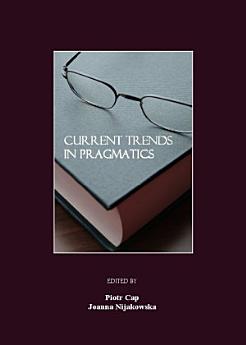Current Trends in Pragmatics
Piotr Cap · Joanna Nijakowska
มี.ค. 2009 · Cambridge Scholars Publishing
5.0star
1 รีวิวreport
eBook
430
หน้า
family_home
มีสิทธิ์
info
reportคะแนนและรีวิวไม่ได้รับการตรวจสอบยืนยัน ดูข้อมูลเพิ่มเติม
เกี่ยวกับ eBook เล่มนี้
The volume brings together twenty articles written by established linguists, language philosophers, sociologists and psychologists, sharing their academic interest in a broad and interdisciplinary field of linguistic pragmatics. The collection consists of four thematic parts: “Pragmatics and Cognition,” “The Semantics-Pragmatics Interface,” “Conversational and Text Analysis” and “Pragmatics, Social Research and Didactics.” It aims to contribute to the debate on the present-day status of pragmatics, by examining three fundamental issues. The first involves the question of the current explanatory power of pragmatics, namely, how successful is the existing apparatus of pragmatics and the basic-level parameters (theories of speech acts, relevance, implicature, presupposition, deixis, politeness, etc.) in the elucidation of various aspects of meaning. The second issue involves the methodological assistance that pragmatics might need in order to enhance its explanatory power. The third has to do with the fuzzily defined boundaries of the discipline of pragmatics and the resulting temptation for analysts to concentrate solely on its fragmented sub-domains. As the collection unfolds, these issues form a continuum which, it seems, is often a process that a linguist goes through as his or her methodological awareness deepens. Thus, the orientation of the volume towards the analyst and the analytic mind-set, as well as the attempted balance in presentation of the alternative approaches, seem the major theoretical characteristic of the book.
การให้คะแนนและรีวิว
5.0
1 รีวิว
เกี่ยวกับผู้แต่ง
Piotr Cap is Associate Professor and Head of the Department of Pragmatics at the University of Łódź, Poland. He has been research fellow at UC Berkeley, Birmingham University, the University of Munich and Boston University. His interests are in pragmatics, political discourse and methodology of linguistics. His book publications include Explorations in Political Discourse (Lang, 2002), Pragmatics Today (Lang, 2005) and Legitimization in Political Discourse (CSP, 2006). He is editor of the international journal Lodz Papers in Pragmatics (LPP).
Joanna Nijakowska is Assistant Professor in the Department of Psycholinguistics and Language Didactics at the University of Łódź, Poland. She specializes in the psychological, neurolinguistic and pragmatic aspects of language comprehension and processing. She has lectured at several European academic centers, including the University of Tampere, the University of York and Manchester University.
ให้คะแนน eBook นี้
แสดงความเห็นของคุณให้เรารับรู้
ข้อมูลในการอ่าน
สมาร์ทโฟนและแท็บเล็ต
ติดตั้งแอป Google Play Books สำหรับ Android และ iPad/iPhone แอปจะซิงค์โดยอัตโนมัติกับบัญชีของคุณ และช่วยให้คุณอ่านแบบออนไลน์หรือออฟไลน์ได้ทุกที่
แล็ปท็อปและคอมพิวเตอร์
คุณฟังหนังสือเสียงที่ซื้อจาก Google Play โดยใช้เว็บเบราว์เซอร์ในคอมพิวเตอร์ได้
eReader และอุปกรณ์อื่นๆ
หากต้องการอ่านบนอุปกรณ์ e-ink เช่น Kobo eReader คุณจะต้องดาวน์โหลดและโอนไฟล์ไปยังอุปกรณ์ของคุณ โปรดทำตามวิธีการอย่างละเอียดในศูนย์ช่วยเหลือเพื่อโอนไฟล์ไปยัง eReader ที่รองรับ







